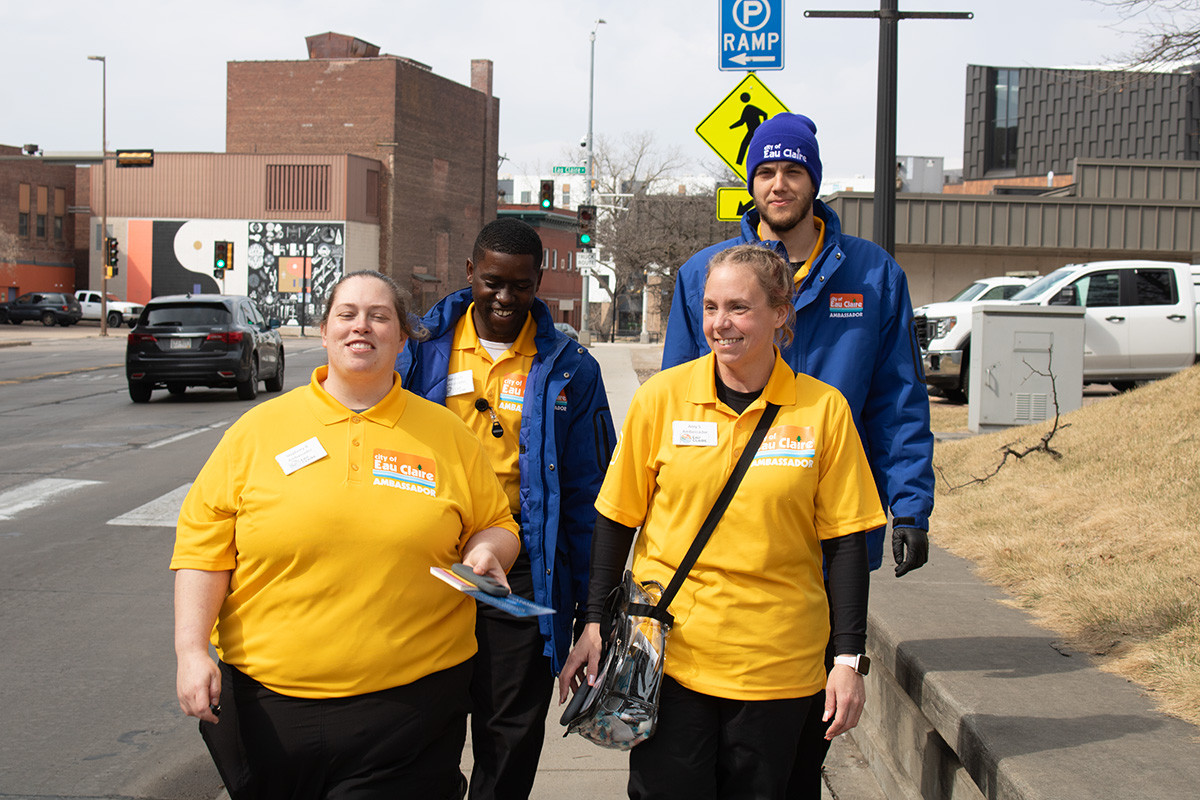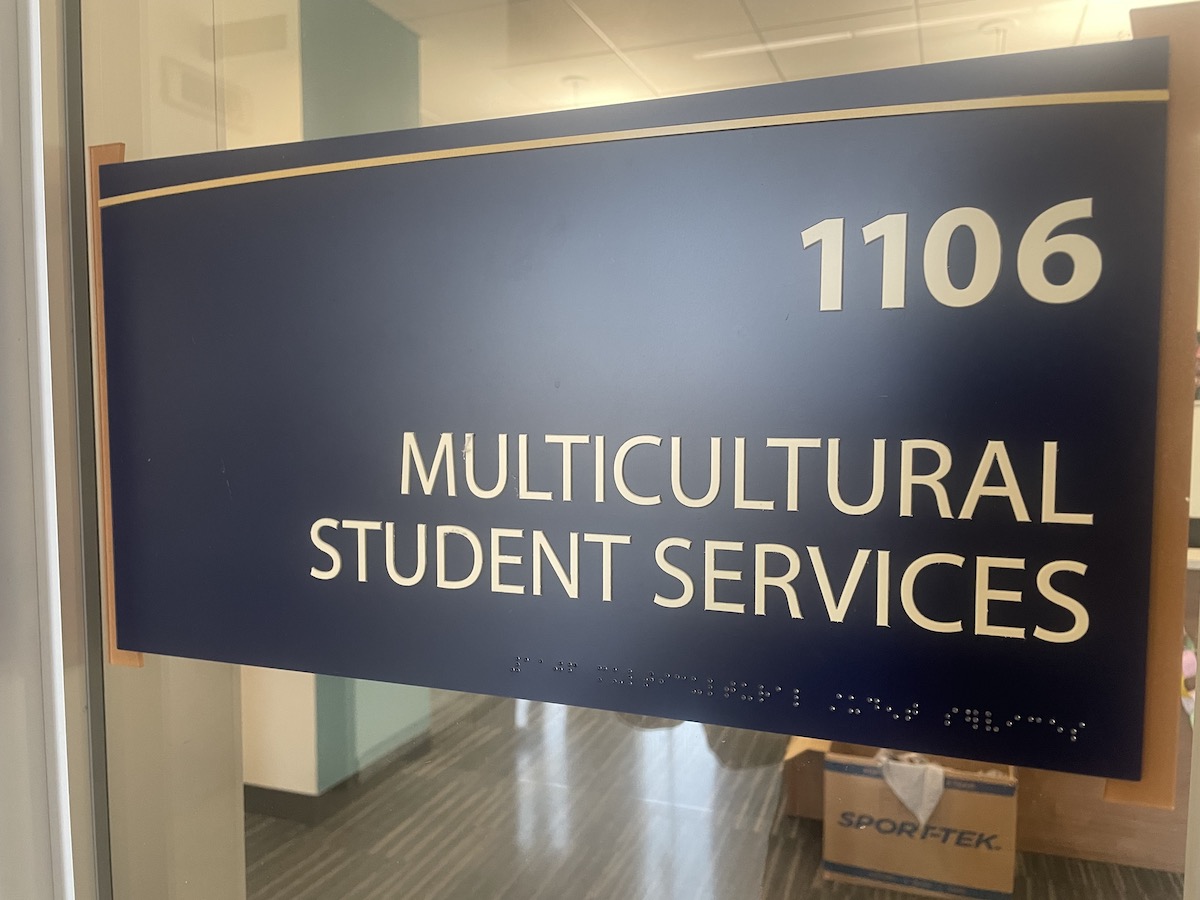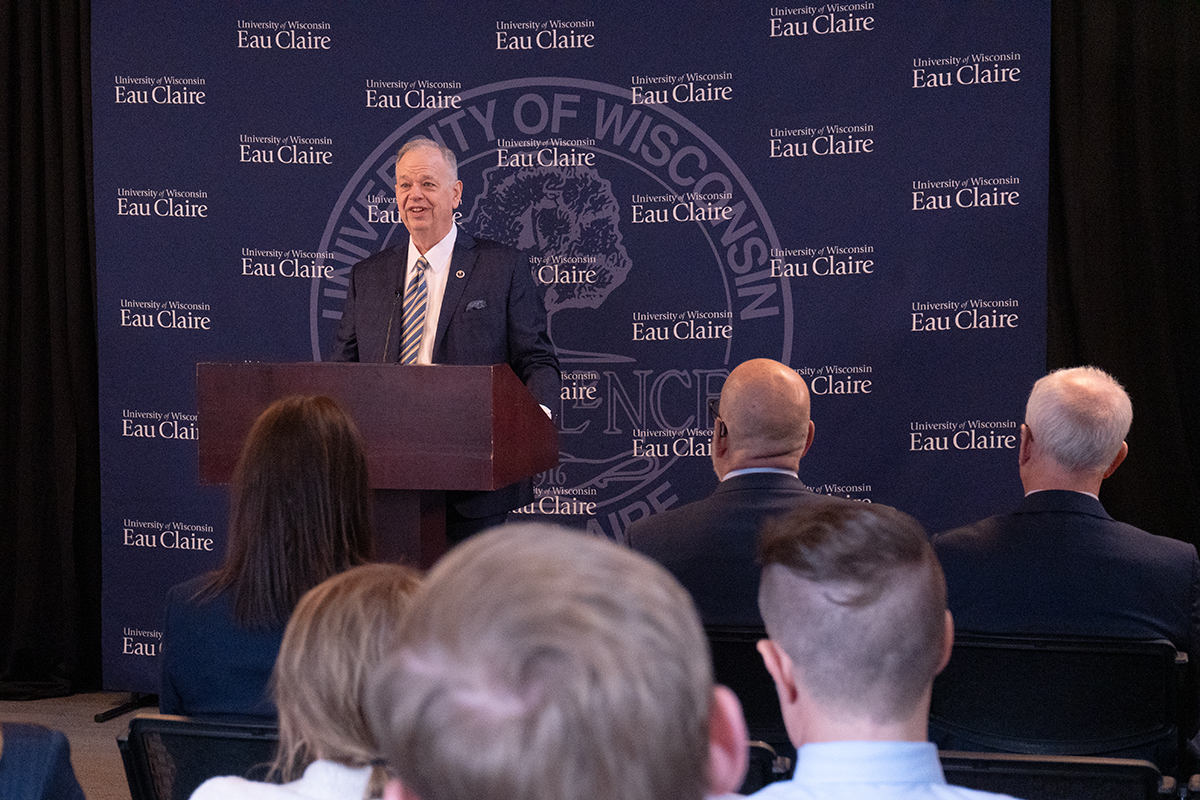 David Taintor
David TaintorChancellor Brian Levin-Stankevich discussed laptop requirements, Davies Center and the university’s carbon footprint with students Wednesday afternoon in the Alumni Room of Davies Center as part of the monthly Chancellor’s Roundtable.
Starting in fall 2009, College of Business students will need to have access to a laptop computer. Business classes that spend more than 25 percent of the class on a computer will be requiring students to bring a laptop with them.
“In today’s world of business, more than ever before, the use of the Web . has almost become a necessity,” said Tom Dock, dean of business.
Dock also said that faculty members have increasingly begun to integrate the use of the computer into their classes.
One of the objections to this plan was on account of the laptop minimum requirements.
“I came with a laptop, but I bought it in 2006,” said junior Student Senate Public Relations Representative Adam Sorelle. “My laptop may not meet these minimum requirements.”
Sorelle, who will be graduating next year, is concerned with the idea of having to buy a new laptop for one year.
Dock said there would be a three-year guarantee on the absence of required upgrades, but based on the discussion during the Roundtable, that may be changed to four years so that students wouldn’t have to worry about upgrading their laptop during their four-year education. There will also be a lot of software available for free to business students in order to cut down on student spending.
Following the laptop discussion, the Roundtable turned to the new Davies Center project. The university has been working with architects to find a site for the facility, Levin-Stankevich said. There have been some objections to the project because of upcoming budget cuts, but the building is being funded by students, so the money can’t go to any other project.
“If we don’t build the building, we can’t collect the money,” Levin-Stankevich said.”If we don’t build the building, we can’t collect the money,” Levin-Stankevich said. “It’s not like that money could be used for something else.”
Director of Facilities Planning and Management Terry Classen said the project will be started fairly soon.
“Construction is scheduled to start . maybe as early as spring of 2010,” he said. “Occupancy is scheduled for fall of 2012.”
Also discussed at the Roundtable was student concern for the lack of large-scale activities on campus. Student Activities and Information Management Coordinator Jim Brockpahler said Zorn Arena is simply not equipped to handle many large-scale concerts anymore.
“Zorn is becoming a less viable facility year after year,” he said. “There is a major problem with the roof because they can no longer have people land up there to work on sound and lights.”
The final item on the agenda was the university’s environmental concerns. The biggest problem with reducing the campus carbon footprint is that there are things that can be done at a university level, but a lot needs to come from a personal or community level.
“It needs to come at a level of cultural change,” said Kate Hale, UW-Eau Claire Campus Sustainability Fellow and assistant professor of English. “We can do things at a community level as well, and need to.”
Examples of reduction of the footprint on campus can be seen in lighting conversion in Phillips Hall, Schneider Hall and McIntyre Library, as well as the replacement of windows and the heating systems in a few of the residence halls.
There are also green tips on the access televisions around campus to help students make their own difference.
“I’d kind of like to see more student-led initiatives,” Levin-Stankevich said.
Sorelle thought that the Roundtable discussion went very well.
“It was nice to see all the students here,” he said, adding many of the discussions in the past hadn’t had many people. “It was well-attended and pretty productive.”







